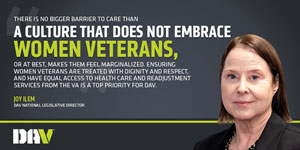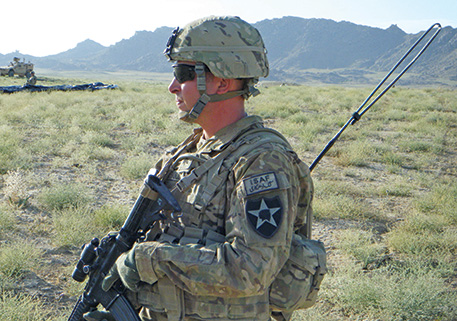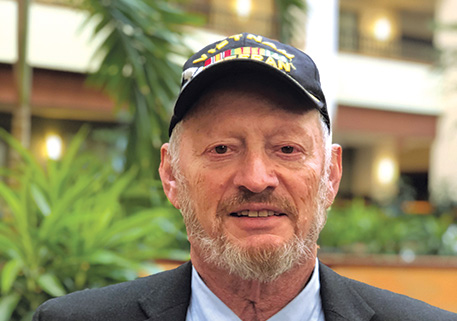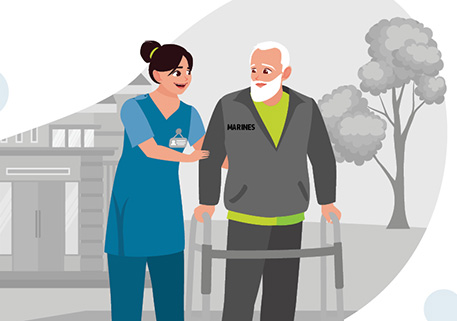

“There is no bigger barrier to care than a culture that does not embrace women veterans or—at best—makes them feel marginalized,” National Legislative Director Joy Ilem testified before the House Veterans’ Affairs Committee Subcommittee on Health, at a hearing May 2.
The hearing—led by subcommittee Chairwoman Julia Brownley—focused on the cultural barriers women veterans face when trying to access care at the VA.
To address the needs of the fastest growing segment of the veterans population, the House Veterans Affairs Committee launched a bipartisan women veterans task force. Led by the congresswoman, it’s goal is to “increase the visibility of the 2 million women veterans living in the United States and to promote inclusivity and equitable access to resources, benefits and health care for women veterans.”
“[Brownley] is going to be tasked with the known barriers to women accessing benefits,” said HVAC Chairman Chairman of House Veterans’ Affairs Committee Mark Takano. “We want to be able to overcome those barriers, and we want to bring to the surface the barriers that we don’t know—the unknowns about our women veterans.”
DAV’s 2018 report Women Veterans: The Journey Ahead highlights the need for culture change in the VA, finding that women veterans perceived their military service was not understood or appreciated like their male peers.
“Women veterans told us they want to be treated with dignity and respect, have equal access to earned benefits and most importantly—they want to be recognized as veterans and appreciated for their contributions in military service,” said Ilem. “We applaud VA’s new End Harassment Campaign and training of employees to intervene when they see harassment occurring and encouraging veterans to immediately report such conduct. However, we need local VA facilities to reach out to women veterans in their area to see where the problems are and work together to fix them.”
Ilem also said veterans organizations—from leadership to grassroots members—should also be aware of these efforts aimed at changing the culture of the VA so everyone can do their part to create a more welcoming and safe environment for the growing population of women veterans accessing VA services.
“Women veterans, who have their military service questioned, or who are routinely disrespected will not stay to find out that VA offers exceptional evidence-based and culturally competent clinical care and integrated services,” said Ilem. “Women veterans need that expertise and deserve to have a system that fully embraces and supports them.”






